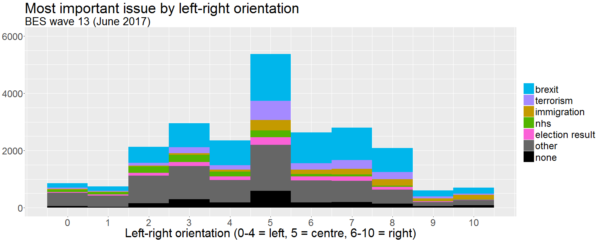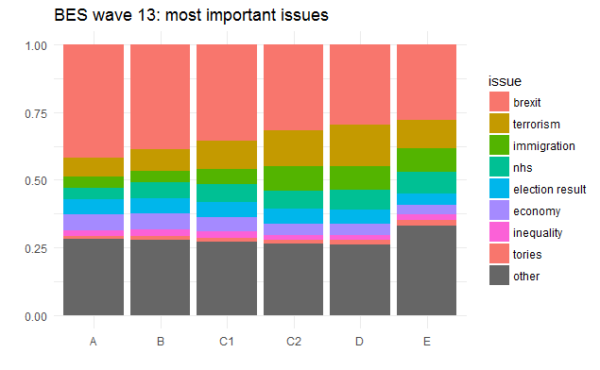Like many, I read with interest Stephen Bush’s recent article on ‘The nine voter groups who are more important than Labour Leavers’. If Bush were a grant awarding institution, there would be money available for researching those groups. Well, he isn’t, so there isn’t, but I like a challenge so I’m going to make a start anyway – using open data from the British Election Study (henceforth, BES). To be more specific, I’ll be using the BES 2017 face-to-face survey, which was conducted after the election and uses what should probably be considered a more genuinely random sample than the online waves.
Tag: survey research
Antisemitism and the misuse of statistics
Last week saw the publication of a very strange report entitled ‘How serious is the threat of antisemitism in Britain today?’ and published on the website of the controversial Jewish Voice for Labour group. It was written by Alan Maddison, an ‘independent strategist’ and associate member of the group with a history of previous attempts to discredit claims of antisemitism. Maddison begins by noting some recent media headlines about antisemitism, and then proceeds to set out the following position:
A review of the latest evidence, presented here, suggests that these headlines are unnecessarily alarmist. The pro rata risks for assaults are lower for Jewish people than for those from other races or religions. The increase in antisemitic hate crimes reported to the police is around half that reported for other victim groups. Finally, a Jewish person is 50 times more likely to be the victim of a general assault than one motivated by antisemitism
Having set out this position, Maddison promises to ‘review the latest evidence behind these more reassuring statements, and place antisemitic hate crime in a broader perspective’. Unfortunately, the way in which he does so discredits the entire enterprise, and calls into question Jewish Voice for Labour’s motivations in publishing his report.
I’ll go through Maddison’s arguments one by one.
Continue reading “Antisemitism and the misuse of statistics”
The left, the right, the centre – and what they care about most
Why did people vote as they did in the June 2017 UK general election, and how might they vote in the next one — whenever it comes? One of the best sources of information on that question is wave 13 of the British Election Study: a very large survey conducted just after the election for a consortium of academics at the University of Manchester, the University of Oxford, and the University of Nottingham. Altogether 31196 respondents completed the survey, of whom 27019 (after weighting) answered the question ‘As far as you’re concerned, what is the SINGLE MOST important issue facing the country at the present time?’ and 23194 (again after weighting) identified themselves politically by positioning themselves on an eleven point scale from left to right. 21213 both placed themselves on the scale and gave their view on the most important issue. I’ve been working with this dataset for a little while, looking at how demographic variables predict perceptions of the most important issue (see my earlier post for my initial exploration of this topic), but here I’d like to focus on the association of particular issues with particular positions on the political spectrum:
Continue reading “The left, the right, the centre – and what they care about most”
‘Middle class problems’? Social grade and the ‘most important issue’ in wave 13 of the British Election Study
The findings of wave 13 of the British Election Study are now out. Wave 13 was conducted just after the June 2017 General Election, and analysts all over the country have been crunching the numbers. This is my contribution, and looks at answers to the question, ‘As far as you’re concerned, what is the SINGLE MOST important issue facing the country at the present time?’ This was a free text question, so respondents were able to provide whatever answers they wished, without restriction. What I wanted to find out was whether people of different NRS social grades would express different concerns in their answers to this question. We already know that Labour gained vote share from the Conservatives in more middle class areas and lost it to them in working class areas. Might analysis of those ‘most important issues’ give a hint as to the different priorities of people of different social classes?
I’ll get some analysis of the numbers up before long, but — for now — here’s the chart:

